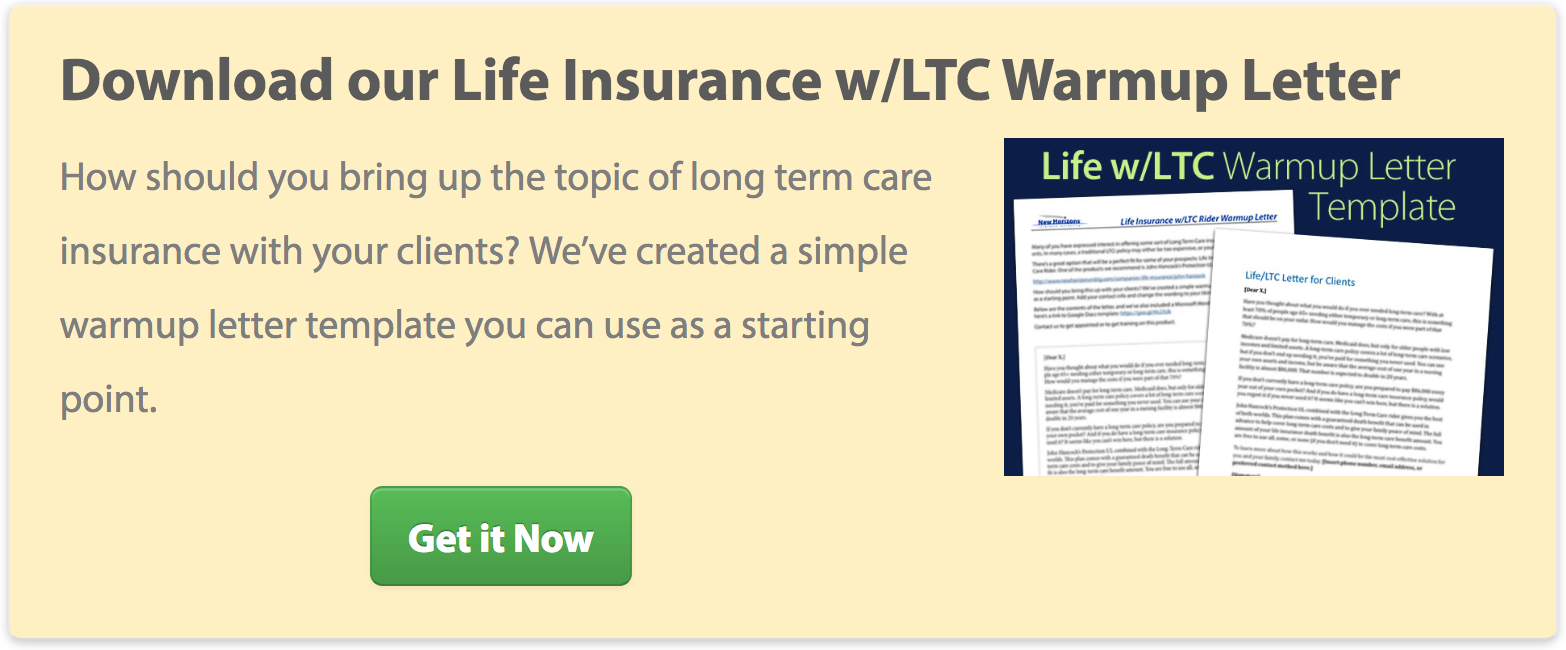We all know what time of year it is…
It’s March Madness, and we’re all filling out our brackets, we’re begging our families to buy tickets to a game, and we’re definitely tuning in to CBS with some kind of chilled beverage.
We’re hoping that our star player rushes up court and makes a slam dunk that will be the talk of the town (and Twitter) until next March rolls around.
It’s this time of year where we’re feeling a little extra competitive; we have just a little extra adrenaline pumping through our veins, and we just need that little nudge to close those difficult sales.
We’re here to give you 3 little-known ways to make sure every long-term care presentation you give ends in a… you guessed it… slam dunk.
Let’s jump right into it:
1. Just get the application going

When you start talking about a long-term care policy, your prospects can almost start to feel like they’re committing to pay a certain dollar amount. Just let them know that you’re going to do the best job you can to give the most accurate quote for the product.
You don’t want a client to feel like they have to know exactly what they want to spend on the premium just yet.
Get the application process started. Once they get approved, you can sharpen your pencil and figure out exactly how much of a benefit is needed and if that meets the budget. Let them know that a decision does not have to be made today.
This helps everyone take the first step (it really helps big time), because it lets them know they don’t have to commit right now.

2. Have multiple proposals ready
Have at least two proposals ready. It’s not “do you want it?” Instead, it’s “which one do you want?” It’s an assumed close, and it’ll help you immensely with the closing process.
3. Use real world examples to seal the deal
All of these plans work in exactly the same way. In order to initiate receiving benefits for the long-term care services, it’s always going to be when you require help with 2 of the 6 activities of daily living or cognitive impairment.
In the back of your client’s minds, they may be thinking, “I wonder if another company might be easier to access benefits from.”

Then, it’ll start spiraling, and some clients will start thinking things like, “Gosh, that’s never going to be me. I’m always going to be able to do things.”
That’s when you jump in and remind them: “Don’t forget about cognitive impairment.”
I love to give the simple examples of forgetting to take your medication or forgetting to turn the stove off.
This seems really simple, but who hasn’t left the water running? Who hasn’t left the stove on? Who hasn’t forgot to take their medication?
Then, there’s always the joke of “I could be on claim already!”
When you throw out those little real world examples, it makes a huge difference. Now your client is thinking, “That’s me! It’s a little closer than I thought it was.”
I’ll leave you with that, and if you have clients that need to warm-up to the idea of long-term care, check out this free Life w/LTC warm-up letter.



![The Simple Question That Drove $9M+ in Annuity Sales [Case Study]](https://blog.newhorizonsmktg.com/hs-fs/hubfs/NH-The-Simple-Question-That-Drove-9M-in-Annuity-Sales-Case%20Study%20(1).webp?width=220&height=119&name=NH-The-Simple-Question-That-Drove-9M-in-Annuity-Sales-Case%20Study%20(1).webp)


